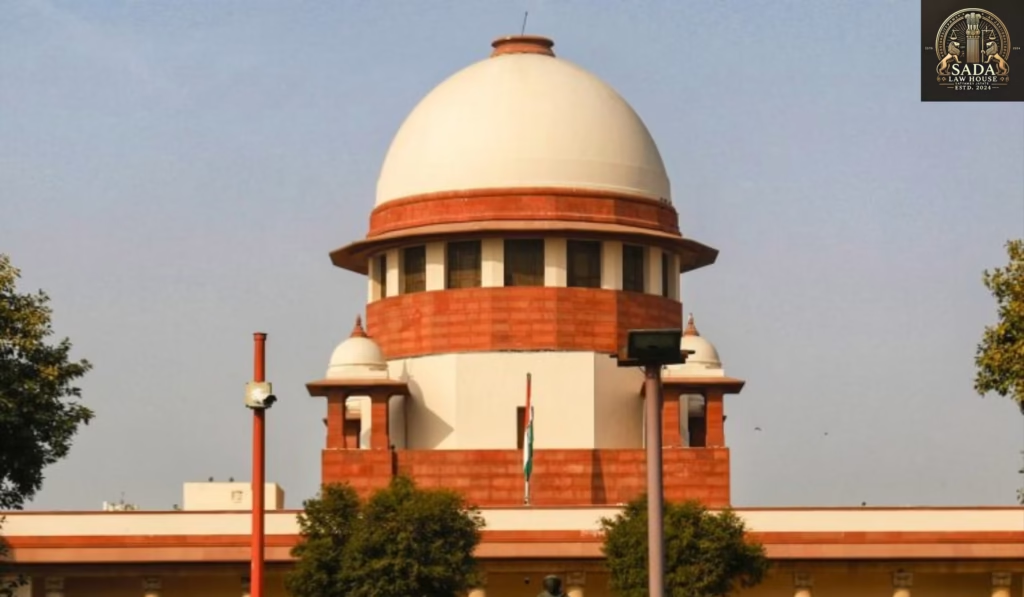Supreme Court Rules Weapon Recovery Alone Insufficient for Murder Conviction
Trending Today Supreme Court Rules Weapon Recovery Alone Insufficient for Murder Conviction Karnataka High Court Dismisses Hate Speech Case Against Former CM Basavaraj Bommai LEGAL INTERNSHIP OPPORTUNITY AT VSK LEGAL, DELHI LEGAL INTERNSHIP OPPORTUNITY AT DEEPAK SINGH THAKUR & ASSOCIATES, NEW DELHI LEGAL JOB OPPORTUNITY AT SLICE BANK LEGAL JOB OPPORTUNITY AT RASHTRIYA RAKSHA UNIVERSITY JOB OPPORTUNITY AT DHANALAKSHMI SRINIVASAN UNIVERSITY LEGAL INTERNSHIP OPPORTUNITY AT ADV. AVNEESH ARPUTHAM LEGAL INTERNSHIP OPPORTUNITY AT SALVORS & CO. LEGAL INTERNSHIP OPPORTUNITY AT GAGAN TIWARI & ASSOCIATES Supreme Court Rules Weapon Recovery Alone Insufficient for Murder Conviction PRABHAT KUMAR BILTORIA 28 June 2025 The Supreme Court of India emphasizes that recovery of a blood-stained weapon alone cannot justify a murder conviction without a complete chain of circumstantial evidence. Learn more about this landmark judgment and its legal impact. Supreme Court of India Clarifies: Weapon Recovery Alone Not Enough for Murder Conviction In a significant legal development, the Supreme Court of India has reaffirmed that merely recovering a blood-stained weapon is insufficient to convict someone of murder in the absence of corroborative evidence. This ruling highlights the importance of a full and unbroken chain of circumstantial evidence to prove guilt beyond a reasonable doubt. Case Background: State of Rajasthan v. Hanuman The case revolves around the 2007 murder of Chotu Lal. The accused, Hanuman, was convicted solely based on the recovery of a blood-stained weapon matching the victim’s blood group (B+). The trial court had found him guilty based on this solitary piece of evidence. However, the Rajasthan High Court overturned the conviction in 2015, ruling that the evidence was insufficient. The High Court stressed that a conviction based solely on circumstantial evidence requires a series of interlinked facts that clearly point to the guilt of the accused. Supreme Court Verdict: Forensic Evidence Needs Corroboration In its detailed judgment, the Supreme Court underlined that the presence of blood on a weapon—even if recovered at the request of the accused—cannot be treated as conclusive proof without other incriminating factors. The judgment cited the case of Raja Naykar v. State of Chhattisgarh as a precedent for this principle. The Court reiterated that forensic evidence must be supported by a broader context of reliable and legally admissible connections. Suspicion alone, no matter how compelling, cannot replace solid proof in criminal proceedings. Importance of the Burden of Proof in Criminal Cases This ruling reinforces a fundamental aspect of criminal law: the burden of proof lies entirely with the prosecution. If there is any reasonable doubt, the benefit must go to the accused. The Supreme Court’s decision acts as a crucial safeguard against potential miscarriages of justice caused by insufficient or misleading evidence. It sets a clear precedent ensuring that only well-substantiated cases lead to conviction. Conclusion: A Landmark Judgment for Indian Jurisprudence This judgment serves as a pivotal reminder for legal practitioners and law enforcement agencies: forensic recovery alone does not equate to guilt. The Supreme Court has once again upheld the principles of justice by ensuring that convictions are based on comprehensive and credible evidence. By reinforcing the need for a full chain of circumstantial evidence, this verdict strengthens the foundation of fair trials and protects individuals from wrongful convictions. Leave a Reply Cancel Reply Logged in as Sada Law. Edit your profile. Log out? Required fields are marked * Message* Live Cases Supreme Court Rules Weapon Recovery Alone Insufficient for Murder Conviction Sada Law • June 28, 2025 • Live cases • No Comments Karnataka High Court Dismisses Hate Speech Case Against Former CM Basavaraj Bommai Sada Law • June 28, 2025 • Live cases • No Comments Supreme Court Acts Against ED Summons to Lawyers: Upholding Legal Privilege and Professional Freedom Sada Law • June 27, 2025 • Live cases • No Comments 1 2 3 … 5 Next »
Supreme Court Rules Weapon Recovery Alone Insufficient for Murder Conviction Read More »



